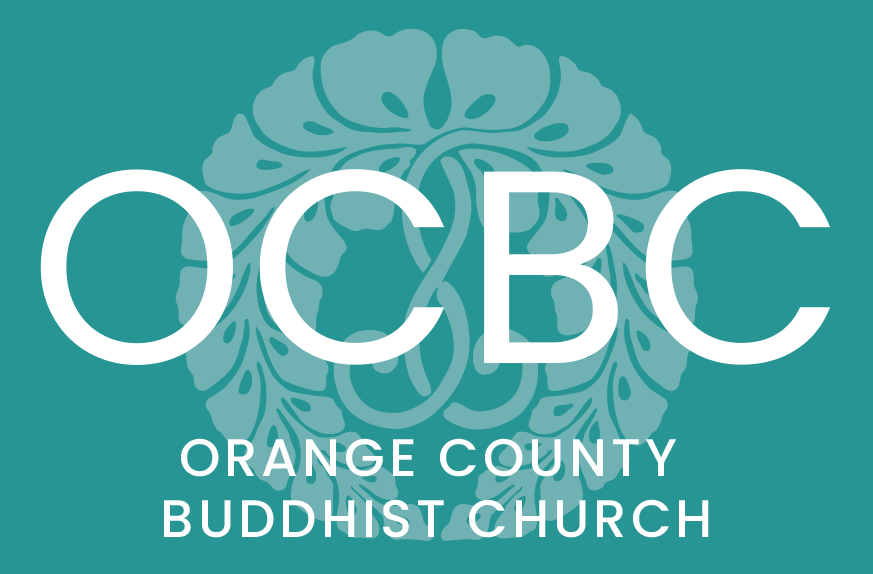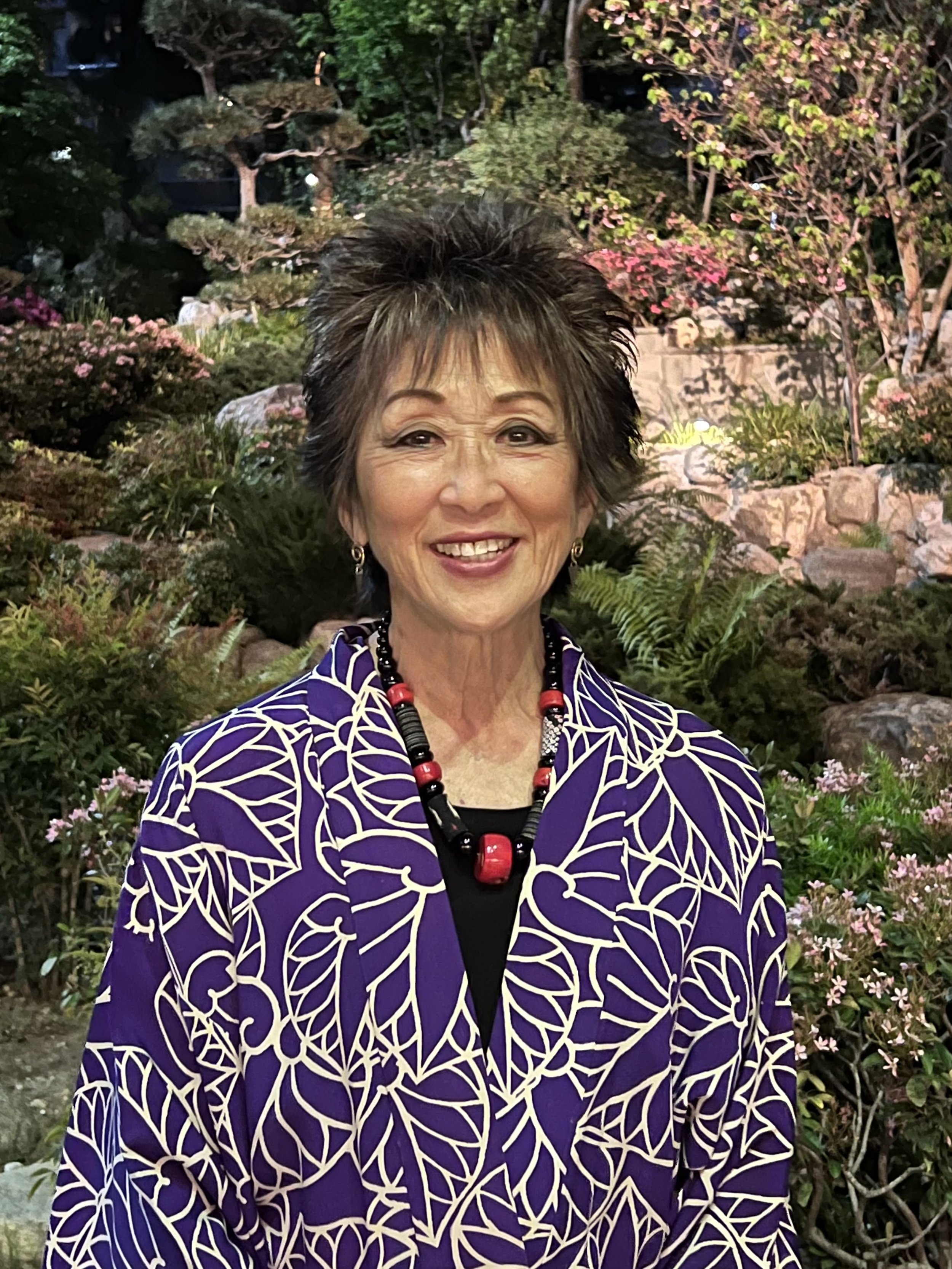Spotlight on Margie Mio
Margie Yuki Mio
“OCBC is a Strong Sangha. We work together, collaborate together, and work things out when the going gets tough.” — Margie Mio
What is your favorite OCBC festival food?
My favorite OCBC festival food is Oden, a Japanese one-pot comfort dish, with its tasty broth filled with tofu, vegetables, and a variety of other ingredients, that was made by Reverend Harada (now Bishop Harada!).
Where did you grow up?
I grew up in Tokyo, Japan for 18 years, attending U.S. Military Dependent Schools after my father, Stanley Kaizawa, from Hawaii joined the Allied Occupation Forces as an MIS soldier and made a career working for the U.S. Air Force in Japan for 29 years.
Who is an inspiration or role model to you?
My father was a great role model and inspiration. He raised my sister and me as a devoted single father after our mother passed away when I was six years old and my sister was three. He supported us physically and emotionally, made sure we took piano and ballet lessons, taught us to swim, took us traveling, and had a way with wit and words. He came from humble beginnings in Pahoa, Hawaii, and grew to be a Renaissance Man in the midst of Japan’s cultural and economic rise while raising two daughters. His joy and vitality have colored my life.
What was the most significant moment for you during the last two years?
Living the last two years through a pandemic created some significant realizations.
I have always been busy and planning ahead, but the pandemic made me slow down to understand what it means to enjoy the moment, and despite the uncertainty, to cherish each day as time marches on. I was filled with gratitude for the simple things—food on the table, the warmth of our home, quality time with our family without distractions. As someone once said, “Only when normal things are not normal anymore, do we realize how special normal things are.” I was grateful to the front-line workers who brought comfort and kept us safe. Listening to the Dharma and chanting on Sunday mornings were not routine anymore, but they became precious and essential for my soul.
How did you decide to attend OCBC?
I started attending OCBC in 1986 when my husband, Art, and I were looking for a basketball team for our eldest son, Michael. I remember how Sus Iwamasa moved players around to make room for him. That’s how our journey began at OCBC, and I am forever grateful that our sons, Michael and Derek, were raised at OCBC with a Buddhist foundation. Today, it is heartwarming to see our grandsons (Wyatt, Maverick, Paxon) feel that OCBC is home. We know that the Dharma will guide their lives, including our newborn grandson, Jady. We have gone full circle, as Michael is an avid coach for both of his older sons’ basketball teams.
What OCBC activities do you participate in?
I am honored to participate as a volunteer on the Board of Directors. I am also a member of the Adult Buddhist Association (ABA) with a fun and dedicated group of people. I recently stepped down after being ABA president for seven years, which I enjoyed and took to heart. Art and I originally joined ABA to stay in touch with OCBC friends after our sons graduated high school. After I retired from being a school principal, ABA gave me great comfort with fellow members as I began to carve a new life with new goals in retirement.
What keeps you coming back to OCBC?
Although I have been coming to OCBC for many years, I continue to learn and grow from listening to the Dharma for spiritual sustenance. I love seeing my grandsons chanting and learning. There is always a friend at the temple. OCBC members, including those who have left us, inspire me with their kindness and commitment with an incredible work ethic. I always said they could lead the world!
What does a Strong Sangha mean to you?
A Strong Sangha is interconnected and interdependent with a common bond. It is about working together, collaborating together, and working things out when the going gets tough. I am always amazed by how our Sangha comes together as a family and community to get things done so efficiently, cheerfully, and successfully.

